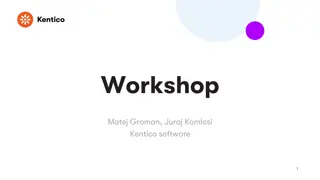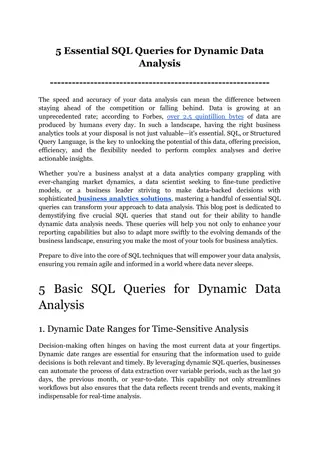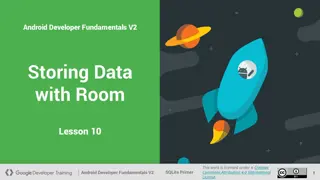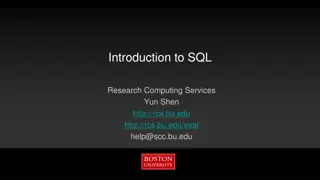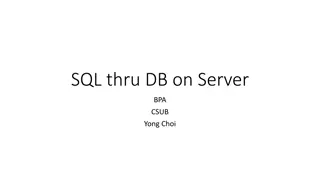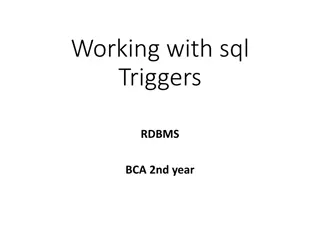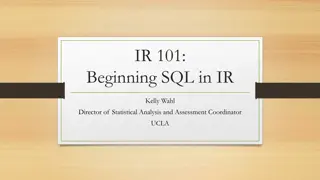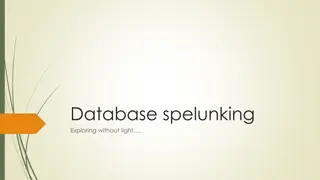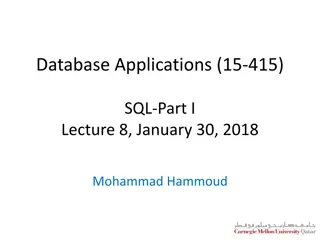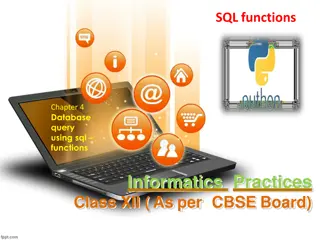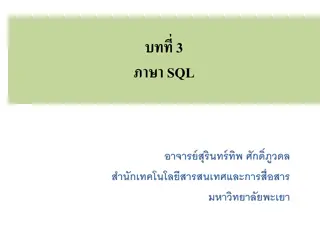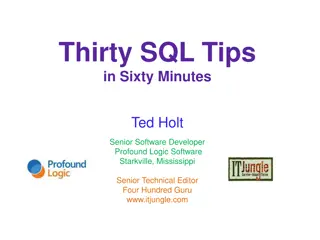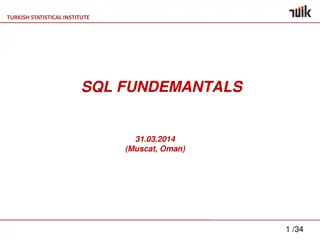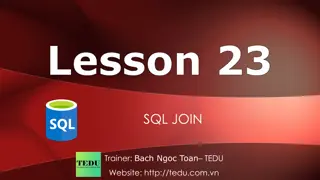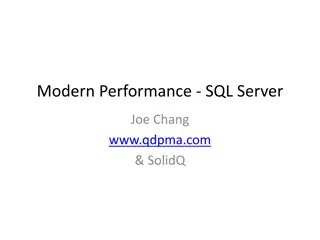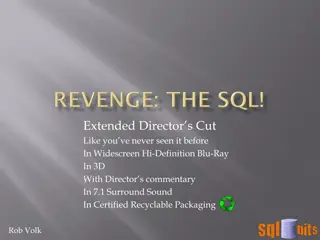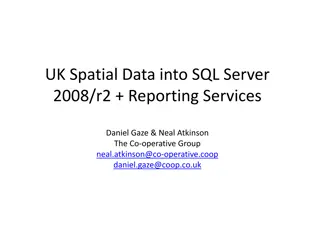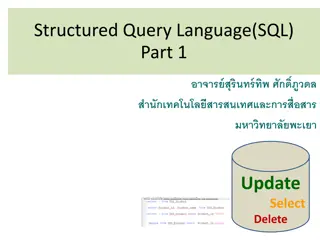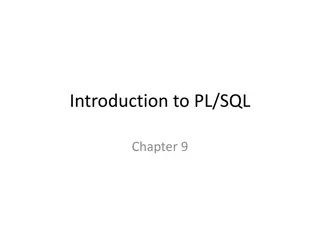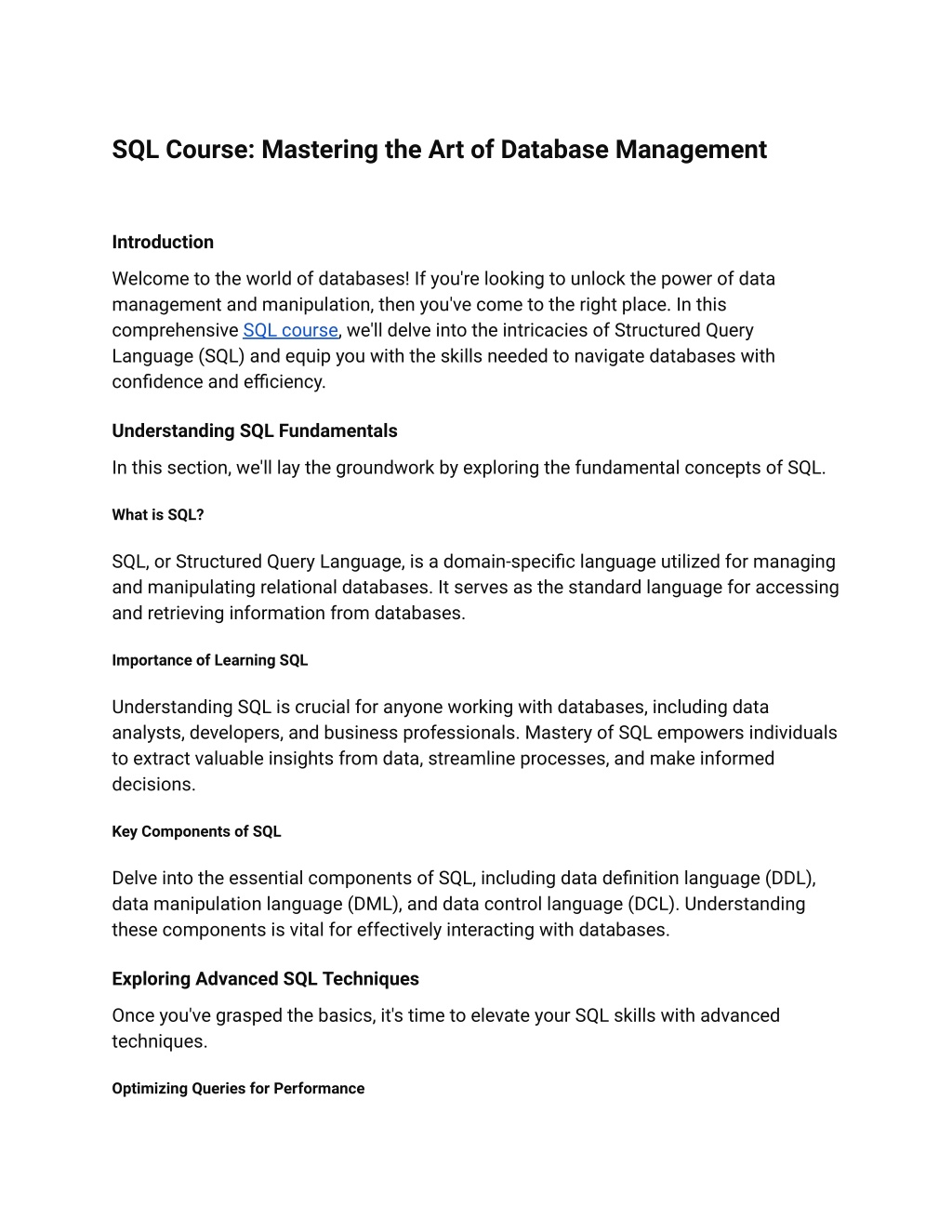
SQL Course - Skills You Will Gain
Our training includes in-depth instruction in Xero, QuickBooks, Sage, and Payroll, all integrated with intensive AAT studies. With our comprehensive approach, you'll be fully prepared for success in your career.
Download Presentation

Please find below an Image/Link to download the presentation.
The content on the website is provided AS IS for your information and personal use only. It may not be sold, licensed, or shared on other websites without obtaining consent from the author. Download presentation by click this link. If you encounter any issues during the download, it is possible that the publisher has removed the file from their server.
E N D
Presentation Transcript
SQL Course: Mastering the Art of Database Management Introduction Welcome to the world of databases! If you're looking to unlock the power of data management and manipulation, then you've come to the right place. In this comprehensive SQL course, we'll delve into the intricacies of Structured Query Language (SQL) and equip you with the skills needed to navigate databases with confidence and efficiency. Understanding SQL Fundamentals In this section, we'll lay the groundwork by exploring the fundamental concepts of SQL. What is SQL? SQL, or Structured Query Language, is a domain-specific language utilized for managing and manipulating relational databases. It serves as the standard language for accessing and retrieving information from databases. Importance of Learning SQL Understanding SQL is crucial for anyone working with databases, including data analysts, developers, and business professionals. Mastery of SQL empowers individuals to extract valuable insights from data, streamline processes, and make informed decisions. Key Components of SQL Delve into the essential components of SQL, including data definition language (DDL), data manipulation language (DML), and data control language (DCL). Understanding these components is vital for effectively interacting with databases. Exploring Advanced SQL Techniques Once you've grasped the basics, it's time to elevate your SQL skills with advanced techniques. Optimizing Queries for Performance
Learn how to optimize SQL queries to enhance database performance and efficiency. From indexing to query restructuring, discover strategies for maximizing speed and minimizing resource consumption. Working with Joins and Subqueries Master the art of joining tables and leveraging subqueries to retrieve complex datasets. These powerful techniques enable you to extract precisely the information you need from relational databases. Implementing Stored Procedures and Functions Explore the creation and utilization of stored procedures and functions in SQL. These encapsulated routines offer reusable solutions for common tasks, promoting code efficiency and maintainability. Practical Applications of SQL In this section, we'll apply your newfound SQL expertise to real-world scenarios. Data Analysis and Reporting Discover how SQL can be used for data analysis and reporting tasks. From generating custom reports to performing trend analysis, SQL empowers users to derive actionable insights from datasets of any size. Database Management and Administration Learn the fundamentals of database management and administration using SQL. Topics include database creation, user permissions, backup and recovery procedures, and performance monitoring. Web Development and E-commerce Integration Explore how SQL integrates with web development frameworks and e-commerce platforms. From dynamic website content to secure transaction processing, SQL plays a vital role in modern online applications. FAQs (Frequently Asked Questions) How long does it take to learn SQL?
Learning SQL proficiency depends on factors such as prior experience and dedication. However, with consistent effort, beginners can acquire foundational SQL skills in a matter of weeks. Can I learn SQL online? Absolutely! There are numerous online resources, tutorials, and courses available for learning SQL at your own pace. Many platforms offer interactive exercises and hands-on projects to reinforce learning. Is SQL difficult to learn for beginners? While SQL may seem daunting at first, its syntax is relatively straightforward, making it accessible to beginners. With patience and practice, mastering SQL is well within reach for anyone interested in databases. What career opportunities are available for SQL professionals? SQL proficiency opens doors to a wide range of career opportunities, including database administrator, data analyst, SQL developer, business intelligence analyst, and more. Is SQL still relevant in today's technology landscape? Absolutely! SQL remains a cornerstone of data management and analysis in various industries. As the volume and complexity of data continue to grow, the demand for SQL skills remains strong. Can I use SQL with non-relational databases? While SQL is primarily associated with relational databases, many non-relational databases offer SQL-like query languages for data manipulation. Familiarity with SQL concepts can be beneficial across various database systems. Conclusion Congratulations on embarking on your SQL learning journey! By mastering the concepts and techniques covered in this course, you'll be well-equipped to tackle database challenges and unlock the full potential of your data.

